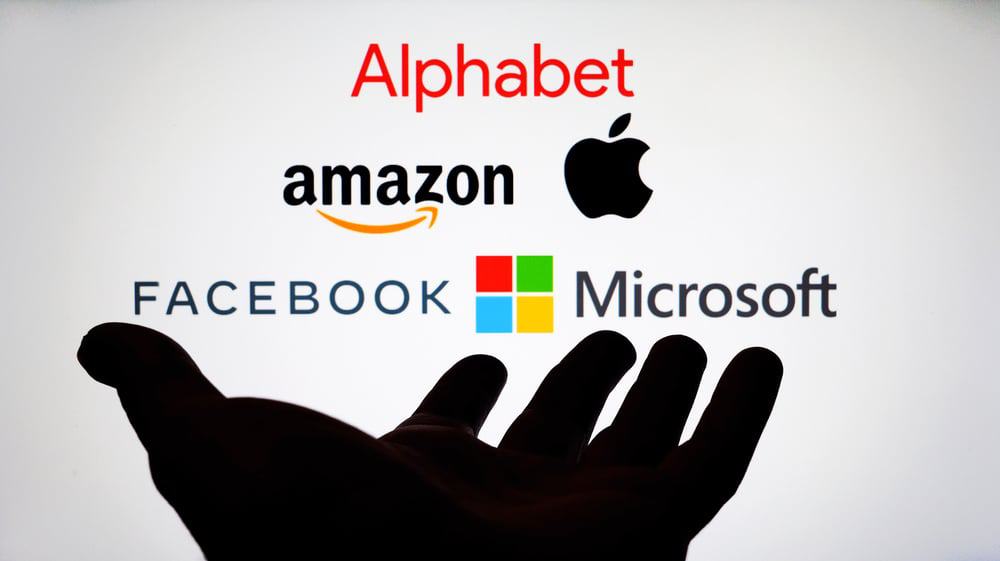EU Fines Big Tech Companies for Unfair Competition
The European Union (EU) has recently hit tech giants such as Meta, Google, and Microsoft with millions of euros in fines. This is due to the suspicion of Big Tech takeovers in both Europe and America. Despite the friction between the two sides, prominent figures such as Sundar Pichai, Sam Altman, and Mark Zuckerburg have been seen in the administrative capitals of the West.
The latest highlight was the record fine of 1.2 billion euros imposed on Meta for sending European data to the US. Although this penalty has certainly hurt the company, its market cap of almost $733 billion means it can handle this with some regularity.
Yesterday, seven tech companies agreed to act as “gatekeepers” for the EU to achieve the goals of the Digital Markets Act (DMA). This includes guidelines on the interoperability of different applications, which should prevent unfair competition and give consumers more freedom of choice. Even though the DMA law has a coercive element (which may come into effect in March 2024), it is still striking that Big Tech itself is emerging to the rescue.
Politicians of different political colors will logically draw different conclusions about how to deal with tech companies. This is not a black and white picture, but has extremes of great freedom of movement for maximum innovation on the one hand and strong restrictions to guarantee privacy and security on the other. Examples include the data for the development of generative AI solutions, data sharing in communication apps, and the continuously evolving algorithms of platforms such as YouTube and Facebook.
This political multiplicity at least partly explains why we may have a fickle attitude towards Big Tech, in which tech prominent people sometimes participate in consultations and sometimes not. The exact nature of the tech industry’s interference in Brussels is difficult to determine. However, we have seen a recent example of what happens when these companies feel that they have had too little influence. The Canadian government introduced Bill C-18, a law requiring Google and Meta to pay money for sharing news articles from that country. In response, Google threatened to pull the plug on Canadian input for their own news platforms.
We still haven’t seen a Google Bard in Europe. The AI chatbot was postponed for our continent in mid-June because Google wanted to avoid being in the crosshairs of Brussels. This is also a handy negotiating tool for the AI Act, which is currently still being developed. After all, too strict restrictions on AI could lead to a competitive disadvantage, just as Canadian news sites may complain to their policy makers.
Big Tech Takeovers
Big Tech takeovers have been viewed with suspicion in both Europe and America. Despite the friction between the two sides, prominent figures such as Sundar Pichai, Sam Altman, and Mark Zuckerburg have been seen in the administrative capitals of the West.
The latest highlight was the record fine of 1.2 billion euros imposed on Meta for sending European data to the US. Although this penalty has certainly hurt the company, its market cap of almost $733 billion means it can handle this with some regularity.
Yesterday, seven tech companies agreed to act as “gatekeepers” for the EU to achieve the goals of the Digital Markets Act (DMA). This includes guidelines on the interoperability of different applications, which should prevent unfair competition and give consumers more freedom of choice. Even though the DMA law has a coercive element (which may come into effect in March 2024), it is still striking that Big Tech itself is emerging to the rescue.
Unilateral Action
Politicians of different political colors will logically draw different conclusions about how to deal with tech companies. This is not a black and white picture, but has extremes of great freedom of movement for maximum innovation on the one hand and strong restrictions to guarantee privacy and security on the other. Examples include the data for the development of generative AI solutions, data sharing in communication apps, and the continuously evolving algorithms of platforms such as YouTube and Facebook.
This political multiplicity at least partly explains why we may have a fickle attitude towards Big Tech, in which tech prominent people sometimes participate in consultations and sometimes not. The exact nature of the tech industry’s interference in Brussels is difficult to determine. However, we have seen a recent example of what happens when these companies feel that they have had too little influence. The Canadian government introduced Bill C-18, a law requiring Google and Meta to pay money for sharing news articles from that country. In response, Google threatened to pull the plug on Canadian input for their own news platforms.
We still haven’t seen a Google Bard in Europe. The AI chatbot was postponed for our continent in mid-June because Google wanted to avoid being in the crosshairs of Brussels. This is also a handy negotiating tool for the AI Act, which is currently still being developed. After all, too strict restrictions on AI could lead to a competitive disadvantage, just as Canadian news sites may complain to their policy makers.





